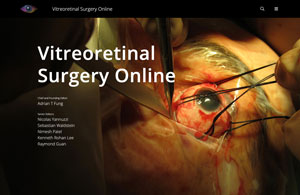11 Examination Preparation
11.2 Preparing for the Examination
1. Be Aware of the Exam Structure and Location
- This sounds obvious but understanding how you will be examined is crucial. Find out as soon as possible the dates, duration, length of each station, and how the examination is marked. If the examination is not held in your home city, travel to the examining city and familiarise yourself with the layout of the clinic the day before the exam. Work out how you are going to get to the exam and how long it will take – there is no excuse for being late. Preparing your travel in advance will also free your mind on the morning of the examination to relax. If your examination will be held virtually online, it is important that you are familiar with the computer setup
2. Organise Your Study Groups Early
- You cannot pass clinical examinations alone. You can always learn something from another candidate. Small groups are best (three to four participants) as groups larger than this can lack focus. Pick your group wisely – they will be your harshest critics and (hopefully) become friends for life. If it is difficult to meet in person, online teleconferencing is invaluable
3. Predict What May Be Asked
- Speak to people who have just passed the examination - they are your best resource for what and how to study. Practice, and mercilessly critique your answers to recent examinations. Know what is “topical” in ophthalmology at the time the examination is set and revise this material accordingly. Think about common surgical scenarios, such as when you would independently do a phacoemulsification or trabeculectomy versus a combined phaco-trabeculectomy
- Once you gain experience with the exam format and style, start to write your own questions for your study group. Mark them yourself to see where gaps in your own knowledge are
4. Study From the Correct Resources
- This depends on the current examination structure and what you predict may be asked. Unfortunately, textbooks rarely capture the nuance of clinical decision making and the juggling of multiple problems and patient factors that is so crucial to exit examinations, so these cannot be your only resource. Recent graduates may have access to collections of notes which are often superior to published texts
- Commonly recommended texts and journals include: Kanski’s Clinical Ophthalmology [i], The Wills Eye Manual [ii], the AAO Basic Clinical Science Course [iii] series, AAO Focal Points articles, The Ophthalmology Examinations Review [iv], The Neuro-ophthalmology Survival Guide [v], the journal Current Opinion in Ophthalmology and of course this book!
- Know the larger trials (especially randomised controlled trials): OHTS, NTG, EMGTS, AGIS, CVOS, BVOS, ANCHOR / MARINA, CATT, DRCR.net, EVS, ONTT, EUGOGO etc. but do not get mired in detail – see Section 11.5 Evidence-Based Medicine with respect to Exit Examinations
Kanski JJ. Clinical Ophthalmology A Systematic Approach, Sixth Edition. Sydney: Elsevier Butterworth-Heinemann, 2007.
Ehlers JP, Shah CP. The Wills Eye Manual. Office and Emergency Room Diagnosis and Treatment of Eye Disease. Fifth Edition. Sydney: Lippincott Williams & Wilkins, 2008
Basic and Clinical Science Course. San Francisco: American Academy of Ophthalmology, 2010.
Wong TY. The Ophthalmology Examinations Review. Singapore: World Scientific, 2001.
Pane A, Burdon M Miller NR. The Neuro-Ophthalmology Survival Guide. Sydney: Mosby Elsevier, 2007.
6. Get to as Many Tutorials / Courses / Conferences as Possible
- This is your time to study. Hopefully your juniors will understand this and cover you as much as possible. Remind them that their time will come too! As much as possible, immerse yourself in ophthalmology and exam preparation for the months prior to the exam. Allocate a member of your cohort or study group to coordinate tutorials with consultants (attendings) – most are happy to help, and some will be very experienced in giving these tutorials
7. Start Doing Practice Exams Now
- You must do practice exams under exam conditions. This means timing yourself and having colleagues assess your answers. You will find that the time is much less than you think. Knowing everything about a topic does not mean that you will pass. Knowing the most important points (in order), will. It is never too early to start doing practice exams
All rights reserved. No part of this publication which includes all images and diagrams may be reproduced, distributed, or transmitted in any form or by any means, including photocopying, recording, or other electronic or mechanical methods, without the prior written permission of the authors, except in the case of brief quotations embodied in critical reviews and certain other noncommercial uses permitted by copyright law.
Vitreoretinal Surgery Online
This open-source textbook provides step-by-step instructions for the full spectrum of vitreoretinal surgical procedures. An international collaboration from over 90 authors worldwide, this text is rich in high quality videos and illustrations.
